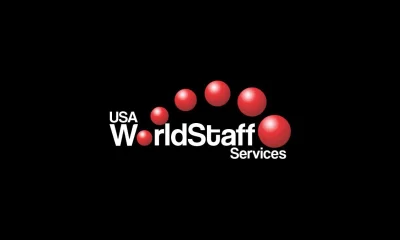Signing out of account, Standby…
If you are thinking of becoming an entrepreneur by acquisition, keep these critical due diligence red flags in mind when trying to find the skeletons in the company closet.
When buying a business, you can’t afford to get caught up in the emotions of the process, and you certainly can’t turn a blind eye to anything. Each and every “corner” must be exposed, analyzed and carefully considered. A failure to do so could lead to a poor investment that eventually comes back to haunt you.
As you do your analysis and due diligence, there are certain red flags that should put you on high alert. They don’t necessarily mean you can’t buy the business, but they do raise suspicions. In this article, we’ll explain what they are and why it’s best to avoid them.
Most businesses fail. That’s just the cold, hard truth. Research shows that 20% of businesses fail within the first year, while roughly half have collapsed by the five-year mark. After a decade, only one-third of businesses are still in operation.
So, even though the business you’re interested in purchasing has made it past the first couple of years, there are still some challenging times ahead. Avoid making things more challenging than they have to be by keeping an eye out for the following red flags and warning signs.
Related: 10 Questions You Must Ask Before Buying a Business
Declining sales figures aren’t a problem in isolation. (Sometimes they actually give you leverage to be able to purchase the business at a lower price and then make some easy fixes to return revenue back to normal levels). However, if there’s a long-term trend, do some digging to find out why.
For example, let’s say these are the quarterly revenues over the past two years:
YR 1, Q1: $1 million
YR 1, Q2: $2 million
YR 1, Q3: $3 million
YR 1, Q4: $1 million
YR 2, Q1: $750k
YR 2, Q2: $600k
YR 2, Q3: $500k
YR 2, Q4: $350k
A quick glance at these numbers shows you something is very wrong. This is more than a small issue. There’s a fundamental problem with the business model or the market. Even if you can buy the business at a fair valuation, there should be bigger questions about whether or not the business can be turned around. This might be a situation where there are factors in play that are outside of your control.
A good company reputation and balance sheet speak for themselves. There’s no need for a huge sales pitch from the seller. If anything, they should be the one with the leverage, fielding offers from buyers.
If you’re on the receiving end of a high-pressure sales pitch, ask yourself why that might be the case. Chances are, the seller wants to unload the business fast. There could be valid reasons for this, but there could also be a few concerns.
Related: 4 Things to Understand When Buying a Business
Don’t just take a company’s internal financials at face value. Get your hands on (at least) the past three year’s tax files, and make sure they’re consistent with what’s being reported on the company’s financial statements. If numbers don’t add up, or something smells funny, carefully investigate it.
Look beyond the balance sheet and financials. You also have to consider the company’s brand and industry presence.
One of the easiest things to do is run a Google search for the company’s name and to study the first several pages of results. Read everything you can get your hands on. This includes blog posts, social media posts, news stories, images, videos, reviews, testimonials, independent rating sites, interviews with founders, etc.
As you do your research, make notes of anything negative. This could be something as simple as a one-star review for a product or as serious as a legal matter. Because here’s the thing: Once you buy the business, all of the previous owner’s problems instantly become yours. It doesn’t matter if you weren’t affiliated with the business when someone wrote a scathing review or article, it’s going to follow you around. This isn’t necessarily grounds for not buying a business, but it should make you pause to perform an even more careful evaluation.
Related: The Benefits of Buying a Business vs. Starting Your Own Company
Never underestimate the importance of rigorous due diligence when acquiring a business. While this vetting process can feel strenuous and overwhelming, it’s a vital part of the process. Not only will you unearth the proverbial skeletons in the closet, but you may also find hidden benefits and bright spots that you weren’t previously privy to.
Exclusive: Tom Brady Appoints Lowe’s Executive as the New CEO of His Wellness Company TB12
The Richest Person on Earth Breaks Every Rule, and You Should Too
Food Network Star Geoffrey Zakarian Distills the Entire Hospitality Industry Down Into Just 48 Words
Overcome the 5 Common Obstacles Keeping You From Full-Time Entrepreneurship
How This First-Generation American Founder Is Taking on Fast-Food Giants
Want to Improve Your Creativity and Focus? Try Eating Chocolate for Breakfast
How the Creator of Dugout Mugs Hit a $30 Million Home Run With a Business He Started in His Apartment
source


 Sports1 year ago
Sports1 year ago
 News2 years ago
News2 years ago
 News2 years ago
News2 years ago
 Entertainment1 year ago
Entertainment1 year ago
 Florida2 years ago
Florida2 years ago
 Entertainment2 years ago
Entertainment2 years ago
 Tech2 years ago
Tech2 years ago
 Business2 years ago
Business2 years ago


